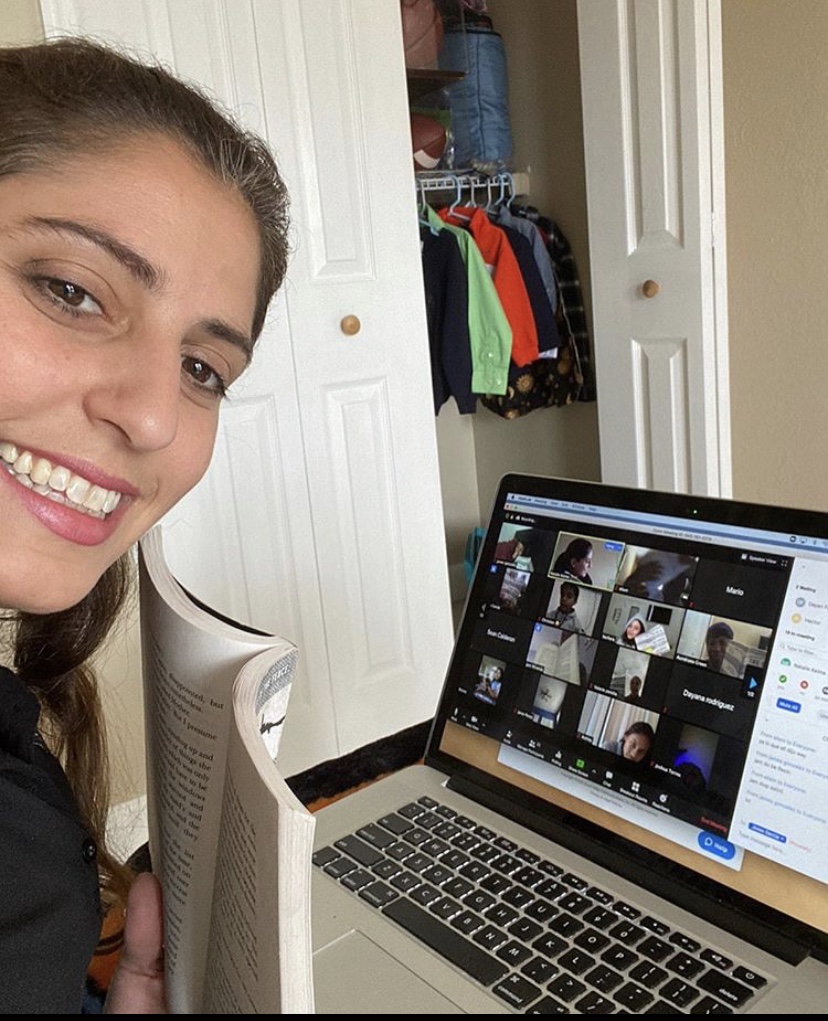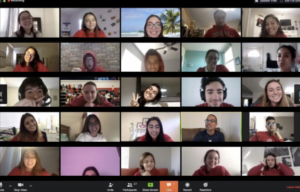
Editor’s note: During the holiday season, redefinED is reprising the “best of the best” from our 2020 archives. This post originally published March 26.
About a decade ago, Fernando Zulueta was making a presentation to school district officials in Florida about why his charter school support company, Academica, needed to expand into online learning. For one thing, he told them, charter schools serviced by Academica must better serve students who need flexibility because of their talents (say, an elite gymnast) or their challenges (say, homebound because of illness). For another, he said, you never know when a natural disaster – maybe even a pandemic – might necessitate a transition into virtual instruction.
Fast forward to coronavirus 2020.
Academica, now one of the biggest charter support organizations in America, was among the first education outfits in America to shift online as thousands of brick-and-mortar schools were shuttered. The company began planning for potential closures weeks in advance. And when the closure orders were given in Florida, it trained thousands of teachers, distributed thousands of laptops, and acclimated tens of thousands of students to a new normal – in a matter of days.
“I’m not a doomsday prepper,” Zulueta said. “But when you do the work we do, you have the responsibility to be prepared … and to evaluate risks and contingencies in the future.”
On March 13, Florida Gov. Ron DeSantis ordered all public schools in Florida to extend spring break a week so students would not return to school. At the time, the vast majority of Florida districts were about to start their spring break, while a handful of others were ending theirs.
Most of the Academica-supported charter schools in Florida were still a week from break. But by March 16, about 40,000 of their 65,000 students logged into class from home. By week’s end, most of the rest had, too. Within days, Academica’s Florida schools were reporting, based on student logins, nearly normal attendance rates.
“I had a little bit of mixed reaction” when the call came to transition, said Miriam Barrios, a third-grade teacher at Mater Academy of International Studies, an Academica-supported school in Miami. Ninety-nine percent of Mater’s students are students of color; 97 percent are low-income. “A lot of these families don’t have computers. So, it was a little scary.”
“But overall things have gone so well, much better than I expected,” Barrios said.
“It ended up feeling a lot like being in school,” said Claudia Fernandez-Castillo, a parent in Miami whose daughters, ages 11 and 12, attend another Academica-supported school, Pinecrest Cove Academy. “They made the kids feel very comfortable with this massive change in their little lives.”
Academica services 165 charter schools in eight states, including 133 in Florida. Somerset, Mater, Doral and Pinecrest are its main networks. According to the most rigorous and respected research on charter school outcomes, students in all four networks are making modest to large gains over like students in district schools.
It remains to be seen how well schools in any sector respond to what is an unprecedented crisis, and what the impacts will be on academic performance.
School districts are mobilizing quickly. In Florida, most of them still have a few days to prep before the bulk of students return to “school” March 30. To date, there’s been little coverage of how Florida’s 600-plus charter schools are coping (though there’s been a glimpse here and there for charters elsewhere.) Ditto for Florida’s 2,700 private schools. Some are proving nimble and capable. But given the big resource disparities, it’s an open question whether others with large numbers of low-income students have the technology and support they need to turn on a dime.
For Academica, online learning is familiar territory. The organization supports three virtual charters in Florida. It offers online courses for students in its other Florida schools. For a decade, it’s also had an international arm, Academica Virtual Education, that serves thousands of students in Europe who need dual enrollment classes to earn specialized diplomas.
Given the events in China, Zulueta said his team began considering, in January, the possibility of school closures in America. The urgency ramped up in February, when the spread of coronavirus in Italy began affecting Academica students in that country.
In mid-February, Academica-serviced schools in the U.S. sent questionnaires to parents, asking if they needed devices and/or connections for distance learning. They ordered what they needed to fill the gaps. When Gov. DeSantis made what was effectively a closure announcement March 13, Zulueta said, “we were already ready to rock and roll.”
The day after the announcement, Academica used online sessions to do basic training in online instruction for 150 administrators. Over that weekend, it trained 3,000 teachers. Meanwhile, schools distributed several thousand laptops to families, in some cases through drive-through pick-ups. Zulueta said the need ranged from 4 percent at some Academica client schools to 20 percent at others.
Schools also immediately let parents know what was coming Monday.
Zulueta, who has three daughters in Academica-serviced schools, witnessed the new normal at his kitchen table.
“They got up. They logged in. And they went right to class,” he said. His daughters and their classmates wore their usual uniforms. The schools did their best to stick to established bell schedules. “We wanted to keep it as close to what they did at school as possible.”

Academica uses an online learning platform it created itself. It’s integrated with a number of other tools, including Zoom, the video conferencing software with the “Hollywood Squares” look.
Fernandez-Castillo, the mom at Pinecrest Cove Academy, said she watched over the weekend as friends who are Academica teachers practiced the new online platform with each other. Barrios, the Mater teacher, said she contacted her students’ parents after her training on Friday to tell them she would be testing the platform at 8 that night if they and their children wanted to join. Eight to 10 families did. But she still had some anxiety about Monday morning.
“I thought it was going to be a freak show,” Barrios said. “The computers are going to crash, the kids are not going to log in … “
That’s not what happened. Monday morning was “a little jagged,” she said, because some students experienced technical difficulties and couldn’t log in right on schedule at 8:30. But by 8:50, 90 percent of her students were in. “It was amazing,” she said.
Barrios and other teachers used Monday to get their students familiar with the new set up. Any glitches, like problems with Internet access, were minor, she said. Over the next few days, she and her students quickly cleared little hurdles, like students learning to keep their mics on mute until it was their time to speak, and how to use chat functions to indicate they had a question.
Barrios doesn’t think there’s a long-term substitute for the dynamics of an in-person classroom, where students, in her view, can more easily “bounce ideas off one another.” But as a next best thing, she said what her school is doing is far better than nothing, and not bad at all.
Fernandez-Castillo agreed, and pointed to other upsides. “Everybody’s thrilled with the way this has been done,” she said, referring to other parents. “I think it glued the (school) community together even more.”


